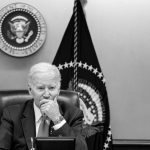President Biden’s recent signing of the Protecting Americans from Foreign Adversary Controlled Applications Act has caused quite a stir, particularly regarding its potential impact on the popular social media app, TikTok. Despite claims from TikTok that the new law is a categorical ban on the platform, the reality is that the law only aims to ban social media platforms if they are controlled by a foreign adversary, such as North Korea, Russia, Iran, or China.
While TikTok reassures its users that the law is a ban and promises to fight it in court, the truth remains that ByteDance, the company behind TikTok, has nearly a year to sell the app to a buyer in any of the 191 countries not designated as “covered nations” by the new law.
In the midst of this controversy, some are perplexed by ByteDance’s reluctance to sell TikTok despite the potentially massive financial gain. With 1.5 billion monthly active users and $16 billion in revenue last year, TikTok’s value seems undeniable. In fact, estimates place the platform’s worth at over $100 billion, if not more. It is surprising, then, that ByteDance’s shareholders are not leaping at the opportunity to sell.
TikTok just released a video from CEO Shou Chew, which is being viewed by millions of TikTok users:
"Make no mistake, this is a ban. A ban on TikTok, and a ban on you and your voice."
Unrepentant lies and propaganda. pic.twitter.com/fmyRCi3IXU
— Kareem Rifai 🌐 (@KareemRifai) April 24, 2024
However, the reason behind ByteDance’s resistance to selling TikTok lies in the company’s ownership structure and the political climate in China. Despite potential profits, ByteDance’s founder and majority shareholders are unwilling to sell due to the Chinese Communist Party’s opposition to the new law. The CCP’s control over Chinese companies, including ByteDance, poses a significant obstacle to any potential sale of TikTok, as the party has insinuated that it would prevent TikTok’s algorithm from being sold. Additionally, Chinese export control rules further complicate the situation, making it clear that ByteDance is ultimately beholden to the CCP’s interests.
Furthermore, the fact that TikTok operates under Chinese jurisdiction raises concerns about user data and privacy. While the company denies turning over private user data to the CCP, its partnership with the Chinese Ministry of Public Security and compliance with the 2017 National Security Law paint a troubling picture. The CCP’s well-documented history of using technology for espionage and surveillance only adds to the complexity of the situation.
The differences between TikTok and its Chinese counterpart, Douyin, offer further insight into the CCP’s agenda. While TikTok features a wide range of content, including dance videos and viral challenges, Douyin promotes educational and patriotic content while limiting users’ screen time. This stark contrast underscores the CCP’s desire to control the narrative and influence the global population.
Overall, the controversy surrounding TikTok and the new law reflects the broader geopolitical tensions between the United States and China. As the debate continues, it is clear that concerns about national security and the CCP’s influence are central to the discussion. While TikTok may hold significant commercial value, its deeper implications in terms of national security and geopolitical influence cannot be overlooked.




